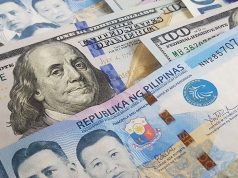Facebook shuts down pro-Duterte accounts
By Arjay L. Balinbin, Reporter
THE FACEBOOK Newsroom said it has taken down “95 pages and 39 accounts” on the social media site, including accounts identified with Rodrigo R. Duterte’s supporters, for violating the site’s spam and authenticity policies.
“As part of our ongoing efforts to protect our services from abuse, we have removed a network of 95 Pages and 39 accounts on Facebook in the Philippines for violating our spam and authenticity policies by encouraging people to visit low quality websites that contain little substantive content and are full of disruptive ads,” Facebook said in its Monday statement.
These pages, according to Facebook, “ranged from political to entertainment content, but all were sharing links to the same advertising click farms off Facebook.”
Facebook noted that this network of pages “includes names like Duterte Media, Duterte sa Pagbabago BUKAS, DDS, Duterte Phenomenon, DU30 Trending News, Hot Babes, News Media Trends, Bossing Vic, Pilipinas Daily News, Like and Win, and Manang Imee, Karlo ang Probinsiyano,” and “4.8 million followed at least one of these 95 Pages.”
For his part, Presidential Spokesman Salvador S. Panelo said: “Facebook must have its rules and regulations. If they are implementing that, then that’s their own rule.”
He added: “Now, if the concern is, there will be no more avenues, there are so many avenues. We have Twitter, Instagram and many others where the advocates can express themselves in support of this administration.”
Last April, Facebook also launched its third-party fact-checking program in order to “combat” the spread of “fake” or false news.
Facebook said it has partnered with Rappler IQ and VERA Files. “These partners have been certified through a non-partisan International Fact-Checking Network and will review news stories on Facebook, check their facts, and rate their accuracy,” the social media company said in its statement.
“We are committed to fighting the spread of false news and misinformation on multiple fronts, employing a variety of tools and tactics. They include disrupting financial incentives, taking action against fake accounts, applying machine learning to help diminish spam, and reducing the posts people see that link to low-quality web pages, providing people with easier access to additional perspectives and information. Partnering with third-party fact-checking organisations is one of the ways we hope to better identify and reduce the reach of false news that people share on our platform,” Facebook’s Director for Community Affairs for APAC (Asia-Pacific) Clair Deevy was quoted as saying.



